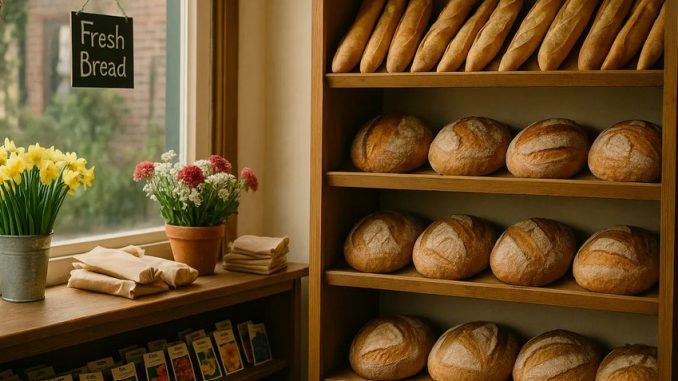
I was days from losing the little shop my father built—watching dreams fade into dust—when Mr. Jones barged in, sharp suit and sharper offer, ready to turn our family’s legacy into another link in his chain-store empire.
But my heart wasn’t done fighting.
I stood by the window, looking out at the quiet street I’d known my whole life. Everything looked the same—jam jars, seed packets, the smell of fresh bread—but the soul of the place felt tired.
It used to be alive. Back when Daddy was here, handing out peppermints and calling folks by name. He believed little details mattered. That people could feel care without seeing it.
I tried to keep it just the way he left it. Same old chime on the door, same creaky floors, same warmth. But ever since the superstore opened down the block, customers vanished.
Then came Jones, flashing an insultingly low offer. “This place is a relic,” he said. “Take the mercy.”
That night, I held an old photo of me and Dad behind the counter and heard his voice in my head: “It’s not about money, Lila. It’s about heart.”
So the next morning, I woke early. Baked extra bread. Polished the glass. Set fresh flowers by the window. I wanted the shop to feel alive—just once more.
Jones came back, smug and ready to seal the deal. But I looked him in the eye and said, “I’m not selling.”
He smirked. “You will. Soon enough.”
But I kept baking. That day, people trickled in—some I hadn’t seen in ages. It wasn’t enough money-wise, but it made the shop feel like it was breathing again.
That evening, I heard a thud at the door. An elderly man had fallen on the step, drawn by the scent of warm bread. He was blind, soft-spoken, and said he hadn’t smelled real bread in years.
He had no money. I gave him a loaf anyway.
We sat. I told him about my father, about the shop. He listened quietly. When a sleek black car came to pick him up, he simply said, “A good loaf should hold a piece of your soul,” then disappeared into the night.
The next morning, I found a letter on the doorstep. No return address.
“Your debts are cleared. Consider this an investment in the kind of place the world needs more of. Keep baking. —A friend of your father’s.”
Inside was enough to save the shop. Maybe even grow it.
Then the bell rang.
The old man returned—same coat, same smile—this time with money in hand.
“You knew my dad?” I asked.
He nodded. “We served together. I always meant to visit. I thought I was too late… until I found you.”
And just like that, he was gone again.
But what he left behind wasn’t just money.
He left behind hope.
Leave a Reply